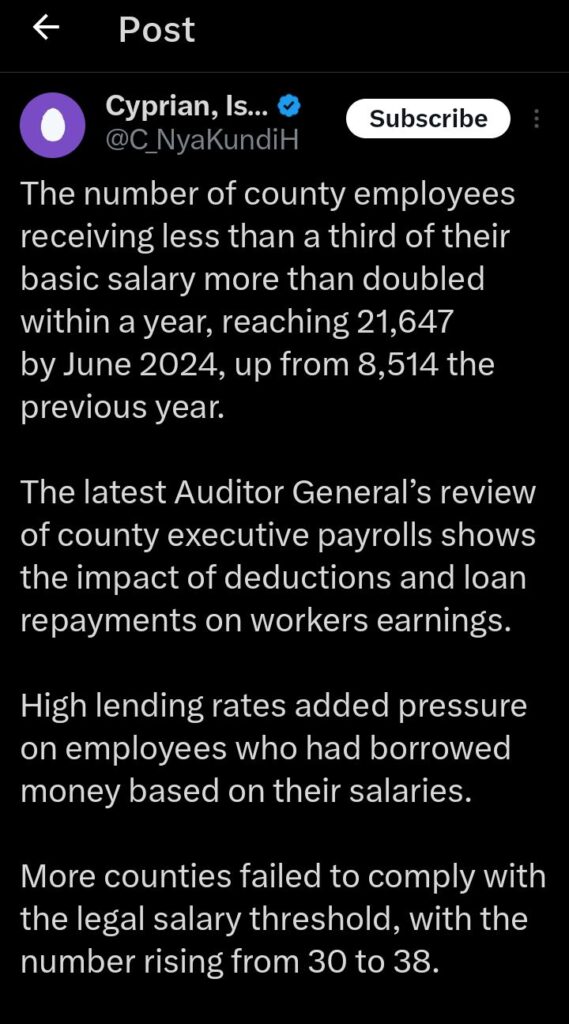County employees across the country are facing a tough financial situation as deductions and loan repayments continue to eat into their salaries. The number of county employees receiving less than a third of their basic salary more than doubled within a year, reaching 21,647 by June 2024, up from 8,514 the previous year.
This alarming increase shows that more workers are struggling to meet their basic needs as their take-home pay shrinks significantly.

The latest Auditor General’s review of county executive payrolls paints a bleak picture of county employees’ financial struggles. The review highlights how heavy deductions, mainly from loans, have left many workers with little money to survive on.
High lending rates have made the situation worse for those who borrowed based on their salaries, as they are now forced to give up most of their pay to meet their loan obligations.
Many employees took loans when interest rates were lower, but as rates increased, their repayments became heavier, reducing their disposable income drastically.
More counties have also failed to comply with the legal salary threshold. In 2023, 30 counties were guilty of making excessive deductions, but by 2024, the number had increased to 38.
This means more county governments are violating the law by allowing deductions that go beyond what is legally acceptable.

According to the Employment Act, 2007, total deductions should not exceed two-thirds of an employee’s wages. However, many counties have ignored this rule, leaving thousands of employees with salaries that are too little to sustain them.
Nandi County recorded the highest number of affected employees, with 3,719 workers receiving less than a third of their salary.
Kitui followed with 1,909 employees, while Meru had 1,707. Other counties with high numbers of affected workers included Kiambu with 1,575 and Embu with 1,366.
In Nandi County, an analysis of the payroll revealed that thousands of employees had their earnings reduced beyond the legal limit, meaning their deductions were higher than what is allowed by law.
This situation has left many workers struggling to pay their bills and support their families.Other counties, such as Trans Nzoia and West Pokot, were also found to have deducted more than two-thirds from some employees’ wages, though the exact number of affected workers was not disclosed.
A detailed review of West Pokot’s payroll over a twelve-month period confirmed that some employees received less than a third of their basic salary after deductions, further exposing the extent of the problem.
The report concludes that counties failing to meet the legal salary threshold are in breach of labour laws. Despite clear legal provisions protecting workers’ salaries, many county governments continue to violate these rules, leaving employees in financial distress.
This issue raises serious concerns about financial management in the counties and the lack of enforcement of labour laws.
Without urgent action, more county employees will continue to suffer under heavy deductions, making it difficult for them to meet their daily needs.





















Add Comment